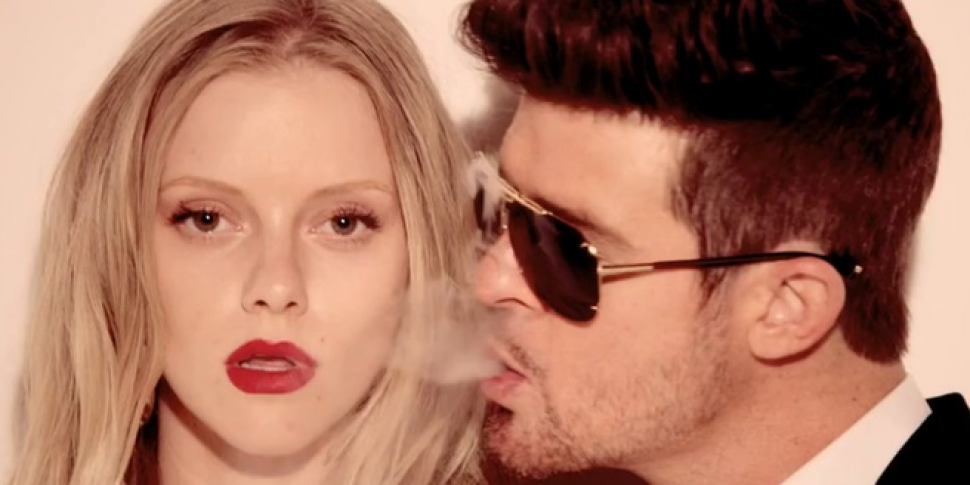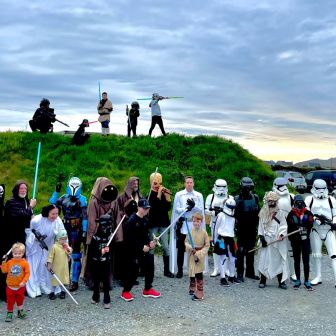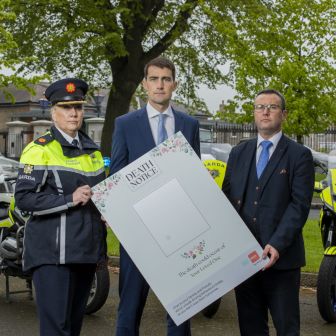According to the jury in the Robin Thicke and Pharrell Williams’ trial with the estate of Marvin Gaye, the musical duo didn’t just blur the lines between original music and ripping off another song, they crossed right over them.
The Californian jurors decided that Blurred Lines was too similar to Got to Give it Up, and now Williams and Thicke will have to give up $7.4m (€7m) for copyright damages and infringement.
The musical crime had George Hook tapping his toes on tonight’s Right Hook, as he talked to Hotpress journalist Colm O’Hare about the case.
Listen here:
But this isn’t the first time that rock stars and singer songwriters have gone to court over a melody. Here are seven other examples:
Tom Petty Vs Sam Smith: The young British pop sensation struck it big in 2014 with Stay with Me, even winning Record of the Year at the GRAMMYs. But a riff in the chorus was so similar to Tom Petty’s 1989 hit I Won’t Back Down that it ended up before a judge, although it was settled out of court – and Petty received a credit as its co-writer.
Larkin Music Vs Men at Work: The Australian band’s smash hit single Down Under was a global sensation in 1981, but in 2010 it lost a case taken by Larkin Music claiming that its melody was ripped from the kids’ song Kookaburra – which had been written in 1934 for the Australian Girl Guides.
Chuck Berry Vs The Beach Boys: The signature song of the all-American boy band is surrounded in controversy, as it appears that Brian Wilson straight up lifted the entire melody of Surfin’ USA from Chuck Berry’s Sweet Little 16. A court case followed, and now it’s listed a coproduction between the two acts – although Berry’s website says The Beach Boys is a cover version of his own.
The Chiffons Vs George Harrison: Arguably one of the most famous disputes in the history of copyright infringement, the former Beatle’s song My Sweet Lord was deemed such a rip off of the Chiffons’ He’s So Fine that he had to fork over almost $2m, and Harrison claimed he never made a penny from recording it.
Huey Lewis Vs Ray Parker Jr.: Lewis turned down the opportunity to record the theme song to Ghostbusters, opting instead to work on music for the Back to the Future franchise. So when he heard the final song released by Ray Parker Jr., he was shocked by the comparison to his own I Want a New Drug. They settled out of court and signed a confidentiality agreement, which Parker has accused Lewis of breaking.
The Kinks Vs The Doors: The UK courts ordered The Doors to pay royalties to The Kinks after the classic riff on Hello, I Love You was ruled to be too similar to All Day and All of the Night. The Kinks’ Ray Davies admitted he was reluctant to sue, only wanted The Doors to own up – “They have, that’s why we should sue them” his publicist told him.
The Rolling Stones Vs The Verve: The 1997 hit Bittersweet Symphony lived up to its title for The Verve, after they were sued and handed over all of the royalties of the global hit – deciding it was cheaper than to keep up a legal battle. The Stones’ claim was that while The Verve had received the rights to an instrumental score of The Last Time, the new version had used more than they had agreed to.









